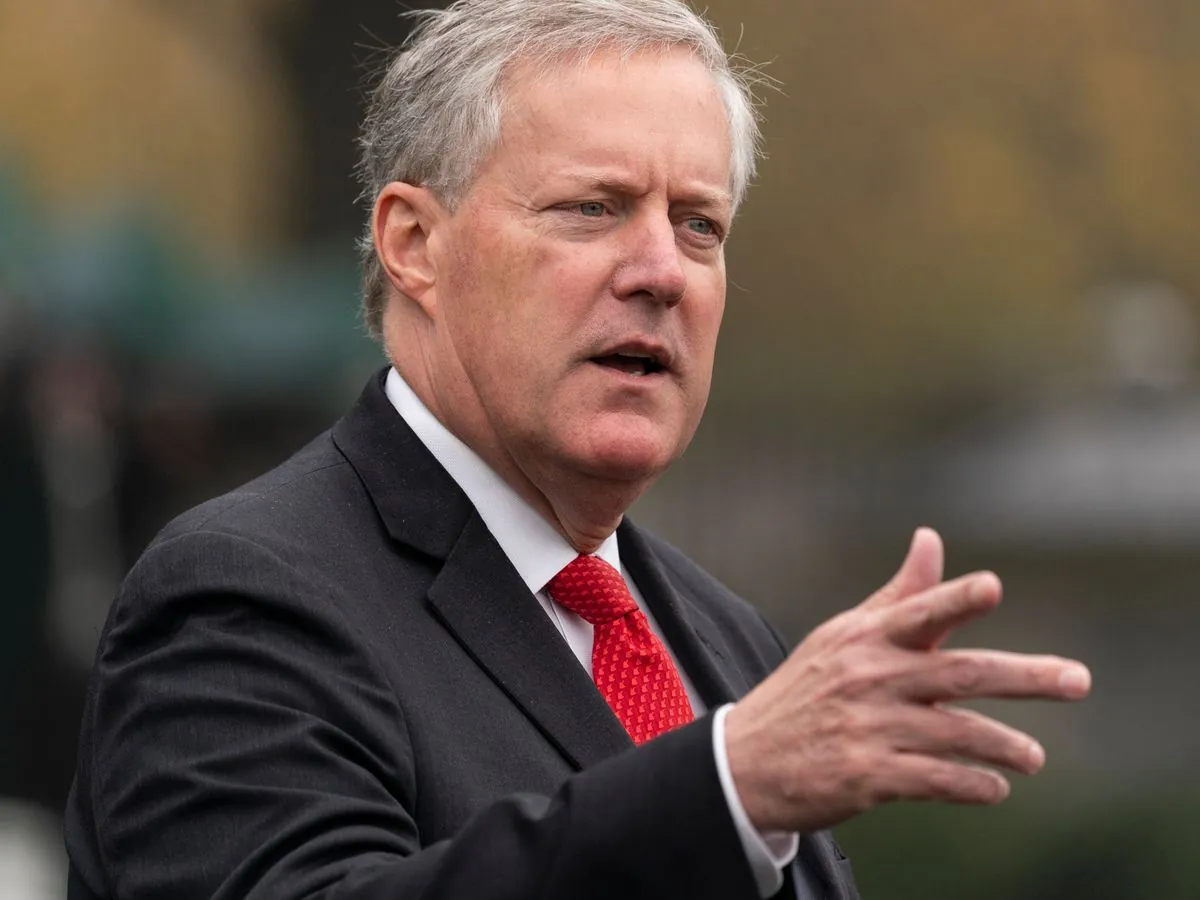In a significant legal development, Mark Meadows, former White House Chief of Staff under President Donald Trump, faced a setback in his ongoing legal battles related to the 2020 election aftermath. U.S. District Court Judge John J. Tuchi of the District of Arizona denied Meadows' request to move his election-subversion case from state to federal court on Monday, September 16, 2024.
This ruling marks another obstacle for Meadows, who unsuccessfully attempted a similar legal maneuver in Georgia approximately one year ago. The Arizona case stems from an April 2024 indictment by a state grand jury, which charged Meadows and 17 other defendants with various felonies, including conspiracy, forgery, and fraud. These charges are related to alleged attempts to manipulate Arizona's 11 electoral votes in favor of Trump instead of the rightful winner, Joe Biden.
Judge Tuchi's decision hinged on Meadows' failure to establish a clear connection between the charged conduct and his former role as White House Chief of Staff. The court stated, "Although the Court credits Mr. Meadows's theory that the Chief of Staff is responsible for acting as the President's gatekeeper, that conclusion does not create a causal nexus between Mr. Meadows's official authority and the charged conduct."
Meadows' legal team had argued for the case's removal to federal court, citing potential immunity under the Supremacy Clause for actions taken in his official capacity. They contended that "Mr. Meadows has the right to remove this matter because he has a federal defense of Supremacy Clause immunity to the State charge and Congress has provided that federal courts are the appropriate forum to adjudicate such issues."
The implications of this ruling are significant, as it keeps the case within the jurisdiction of Arizona state courts. This decision aligns with the principle of dual sovereignty in the U.S. legal system, where both federal and state governments maintain certain powers and jurisdictions.
It's worth noting that the 2020 U.S. presidential election saw the highest voter turnout in over a century, with 66.8% of eligible voters participating. In Arizona specifically, Biden secured victory by a narrow margin of 0.3%, or 10,457 votes, highlighting the intense scrutiny and subsequent legal challenges in key battleground states.
As the legal proceedings continue, Meadows faces an uphill battle. In a parallel case in Georgia, he has appealed to the U.S. Supreme Court to overturn a lower court's rejection of his immunity claims. The outcome of these cases could have far-reaching implications for the accountability of federal officials in election-related matters.
"The conduct giving rise to the charges in the indictment all occurred during his tenure and as part of his service as White House Chief of Staff."
This ongoing legal saga underscores the complex interplay between federal and state jurisdictions in cases involving high-ranking government officials. As the judicial process unfolds, it continues to shed light on the events surrounding the contentious 2020 election and its aftermath.
